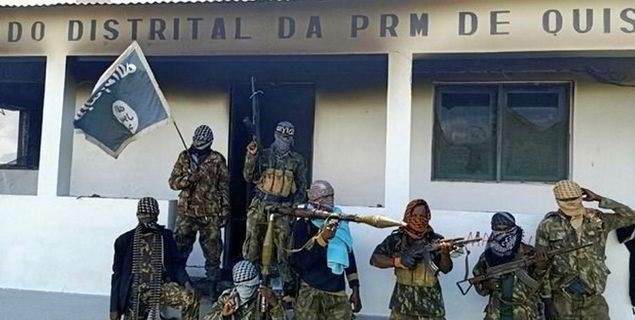After staging a mass exodus from Syria and Iraq, the Islamic State terror group is making a serious effort to root its presence in Africa.
It is here that its interests are colliding with core concerns of established and emerging global powers including the United States, China and India.
This sharp clash of interests is driven by the hunt for Africa’s natural resources. The IS is trying to consolidate its hold in those countries which are rich in resources, including oil and gas, rare earths and other special metals that will power the future electric vehicle revolution and Industry 4.0.
Also read: India and France backed by QUAD may have to counter Islamic State in Mozambique
India has already been jolted in Mozambique when the IS overran an energy rich area in where Indian oil majors had made substantial investments.
The IS has already acquired considerable experience in Syria of taking over oil wells and fuelling its operations by selling energy through grey-zone channels. After its displacement from West Asia, the IS can now leverage that experience, and knowledge of underground networks to monetise illegal sales, in its new geographical setting.
The IS has been digging in, in the impoverished Cabo Delgado region in the northern part of Mozambique. In March, it overran the resort town of Palma, not far from an energy project run by Total, the French energy major.
India has invested billions of dollars in Mozambique, but these investments are now being endangered by the IS forays. India’s ONGC Videsh Ltd. (OVL) and Oil India Ltd. (OIL) have invested heavily in the $24.1 billion liquefied natural gas (LNG) project on the Afungi peninsula in Mozambique, which was being led by French energy titan Total SE. The project is meant to yield 12.88 million tonnes of LNG per annum. But following the IS attack in March in the Cabo Delgado region, Total has pulled out of the Afungi project.
Mozambique has 3,000 Indian nationals, representing various Indian companies or working as professionals in Mozambican companies. Besides, there is 20000 strong Indian diaspora population tracing is roots to Gujarat, Goa, Daman& Diu. This Indian-origin community is mostly engaged in wholesale and retail trade in Mozambique, according to an Indian embassy posting.
In an opinion article in The Hill, Kelly Alkhouli a political consultant at the Center of Political and Foreign Affairs (CPFA), points out that apart from energy, the Cabo Delgado area is a significant trafficking route for ivory, timber, rubies, arms and, most importantly, heroin.
Heroin, he says, is largely produced in Afghanistan and then trafficked into Iran and Pakistan; from there it follows various routes to the international market.
Over the past three decades, northern Mozambique has become increasingly significant in the southern trafficking route, where heroin produced in Afghanistan and into Iran and Pakistan is then transported to South Africa and shipped off to Europe.
According to a recent study, roughly USD 600 million to USD 800 million worth of heroin is trafficked through northern Mozambique, says the report.
Further entrenchment of the IS in Cabo Delgado would also mean that the terror group could permeate its influence in neighbouring Malawi, Tanzania and South Africa, along the Indian Ocean coastline, where India has deep roots and strong geo-economic interests.
In an opinion article in The Hill, Kelly Alkhouli a political consultant at the Center of Political and Foreign Affairs (CPFA), points out that apart from energy, the Cabo Delgado area is a significant trafficking route for ivory, timber, rubies, arms and, most importantly, heroin.
Heroin, he says, is largely produced in Afghanistan and then trafficked into Iran and Pakistan; from there it follows various routes to the international market.
Over the past three decades, northern Mozambique has become increasingly significant in the southern trafficking route, where heroin produced in Afghanistan and into Iran and Pakistan is then transported to South Africa and shipped off to Europe.
According to a recent study, roughly USD 600 million to USD 800 million worth of heroin is trafficked through northern Mozambique, says the report.
A US state department note issued in March explains the gradual rise of IS in Africa. It points out that the Islamic State of Iraq and Syria (ISIS) announced the launch of the Islamic State Central Africa Province (ISCAP) in April 2019 to promote the presence of ISIS associated elements within Central, East, and Southern Africa. Within ISCAP, the ISIS-Democratic Republic of Congo (DRC) and ISIS-Mozambique are distinct groups with distinct origins.
The note points out that the Al Shabab militant group that operated in part of East Africa including Mozambique had reportedly pledged allegiance to ISIS-Mozambique in 2018 itself. The ISIS-Core acknowledged the affiliation in August 2019. The notorious group, led by Abu Yasir Hassan, has already killed more than 1,300 civilians, and more than 2,300 civilians, security force members. The group was responsible for the capture of the strategic port of Mocimboa da Praia, in the Cabo Delgado Province.




















